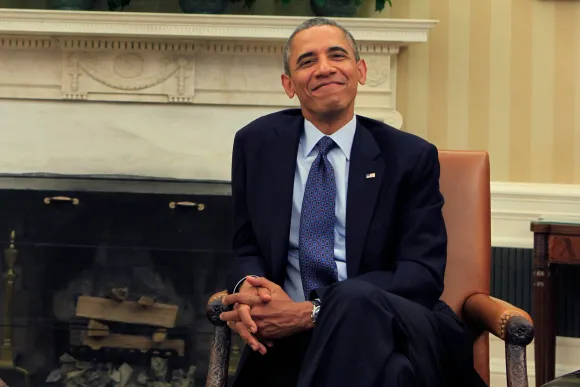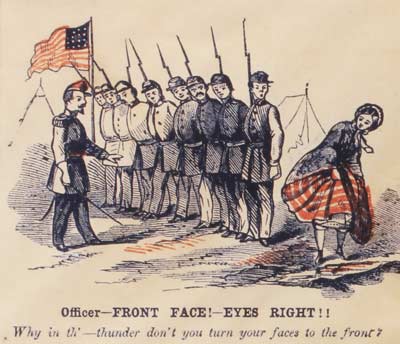I suppose all children love their mothers. She represents everything that is decent, unwavering and solid in an otherwise changing world. A fountain of unconditional love. My mother was all that and much more.
Lalita started life in Dharwar, a small town in the state of Karnataka India, in an affluent joint family where parents, aunts, uncles and cousins lived together as one, presided over by a grandfather and grandmother. She was the eldest of four siblings; A tom boy who played cricket with the boys, rode bikes and later played badminton like a champ. She started life on a tumultuous note surviving a bizarre and horrific car accident, brought on by the new family car being left unattended on a slope with the motor running and four children ( my mom and her cousins) jumping and squabbling on the seats. The car moved slowly down the slope gathering momentum and then speeding furiously down, landed below on the railway track wheels up, and here’s the highlight, an approaching train had to be flagged and, yes, it was mercifully brought to a halt. Her cousins were thrown out and escaped with minor cuts and bruises but my mother was horrifically injured with broken glass embedded in her skull. Mercifully she survived and recovered. Sounds like something out of the movies? Yes, that’s how it all started.
The family business went bankrupt and the joint family disintegrated. The uncles went to Bombay with their families, in search of opportunity, and settled there. My grandfather went too, but left his family behind, with the intention of returning and collecting them later. My mother who was in college at the time, dropped out for lack of funds ,and after waiting for a few months for her father to return and no communication from him, decided to follow him to Bombay. She left alone, leaving her mother and siblings behind. She stayed with relatives and after a long search finally found him. He had found a place to live and was going to send for his family, when his daughter arrived. My grandfather a die hard businessman started a new business as a cotton merchant and brought his family over to Bombay.
The Second World War was upon them. Amidst the din of sirens, and the ominous gloom of blackouts the family began a new life in Bombay. My mother started work at the Central Telegraph Office which was kept very busy indeed during the years of the war. She later joined the RAF, the Royal Air Force as one of its ground support staff. She had many interesting anecdotes about her years here. The stern discipline; she once forgot her identification pass. The guard (Tommy as she referred to him) at the door, who saw her everyday refused to let her in and demanded she go right back home and return with the pass. Home was several stations away by train but he wouldn’t be persuaded. Finally, she did just that but out of that experience was born a new respect for discipline. She also recalled the ‘Christmas Ball’at the RAF with a twinkle in her eye. One that she stubbornly insisted on going to, leaving the parents, relatives and neighbors flabbergasted. What could a chaste Hindu girl be doing at a ball, amidst the foreigners who were known to have ‘lax morals?’ She had a wonderful time. The foreigners, her colleagues, as it turned out were perfect gentlemen. I have not mentioned that my mother was a beautiful woman but completely unaware of it, as beautiful in those days meant being fair and she was dusky and was always made to feel unattractive. That was the way things worked back then. Indians still have a hang up about fairness as is evident from the huge popularity of the cream ‘Fair and Lovely’.
My dad was a journalist and worked as an Assistant Editor for an English Weekly “The Illustrated Weekly of India” based in Mumbai owned by the Times of India. He was a brilliant writer and scholar and had been nominated as a Fellow of the Royal Society of Arts back in 1937. Besides writing and books, his other passion was Indian Classical music. He was a member of many music clubs that regularly featured talented artists who later became famous. My grandfather besides being a businessman was also a keen lover of Indian Classical music, and played the dilruba ( an instrument like a violin, but bigger and more strings), like a pro. It was at one of these soirees that the two met. From then on they became good friends and my father visited him often to discuss music and hear him play. That’s how he met my mom. My dad’s previous wife had died a few years prior when she was given a penicillin shot in the hospital where she was being treated for an infection, being allergic to penicillin. It was a clear cut case of criminal negligence where the hospital should have been prosecuted, but my father, devastated, had neither the will nor the inclination to pursue legal action. He also had a seven year old son from his first marriage, and the child was living with his maternal grandparents.
After a brief courtship my dad proposed and the two married on November 3rd, 1945. The war was almost over, but the ‘Quit India’ movement which had been simmering for many years gathered momentum. It was led by Mahatma Gandhi and political leaders were regularly jailed for defiance, making inflammatory speeches and other activities. People started weaving their own cloth after calls by Gandhi to boycott foreign cloth. Those were troubled times but the beacon of freedom glowed in the distance, the British tired from the war, and the determination of the freedom fighters relented and finally it seemed that India would be free at last. My brother was born in August of 1946. There was hope and optimism and joy but it seems all good things come with a price tag. Jinnah demanded a separate homeland for Muslims and hate and suspicion replaced trust and friendship. There were deep rumblings of discontent, an ominous gloom in the air and the feeling of calm before a storm. India became free on August 15, 1947 in a solemn ceremony presided over by the Vice Roy, Mountbatten and then all hell broke lose. The storm when it came, was of horrendous proportions. Millions of innocent men, women and children were slaughtered in the division of India in a display of violence and hate unparalleled in history. The Hindu far right RSS or the Rashtriya Sevak Sangh blamed Gandhi for being too indulgent towards the Muslims. On January 30th, 1948, at a prayer meeting, Gandhi was assassinated by a RSS member Nathuram Godse, a Maharashtrian Brahmin. India was in shock.
My dad’s career was considerably influenced by his personality. He bowed to no one and refused to compromise on his principles. He had deep contempt for opportunists and “careerists” who posed as journalists and quite often was at odds with those who owned the journal or newspaper. He had the naivete of a child in some ways and could see no evil intent or malice anywhere. He lived in his world of books and optimism with the result that he found himself changing jobs frequently and moving his family often. My mother was the foundation, the practical down to earth, solid pillar that the family relied on. She did everything that mothers do, but much much more. She became the center of our hearth, the strong practical no nonsense planner and organizer. The anchor and emotional support of our family.
She remained the same courageous, optimistic, calm and supportive parent right until her death on January 7th 2015 on a cold wintry afternoon, when I left her in the hospital to take a lunch break. I have never forgiven myself for that and probably never will.
Two months later there was a strange incident. I have never believed in the Supernatural, and it could just be a coincidence, but it set me thinking. My husband and I were leaving mom’s apartment the next day. I was in the bedroom packing my suitcase when suddenly a Sunbird showed up at a most unlikely place on the verandah. There was absolutely nothing there to attract it. No flowers for the nectar, nothing. It seemed agitated. It fluttered up and down with loud clucks almost as if it were trying to tell me something. I was amused at first and didn’t pay much attention and then it flew away. The next day it came again. Again the same agitated clucks. Each time I was alone. My husband had gone on some errands. When I mentioned this to him he jokingly replied “it’s probably your mom come to say goodbye”. It struck me at the time that this is exactly what she might do knowing her personality.
We returned home to Michigan and I thought often about my mother. One summer day I was sitting at my patio table on the deck thinking about my mother when three birds hopped on to the railing of the deck, close to me. One hopped on to the table, dangerously close. These were not sparrows. Rather colored like sparrows but much bigger. The other two waited. Then they all flew away. I wondered if it could be my mother, grandmother whom I adored and my dad who I was also close to. I’ll never know. I like to think people live on and visit us from time to time. I see her in my dreams often and she is young and beautiful. I feel her presence in my heart and I know she is close. Love you mummy. Happy Mother’s Day !












